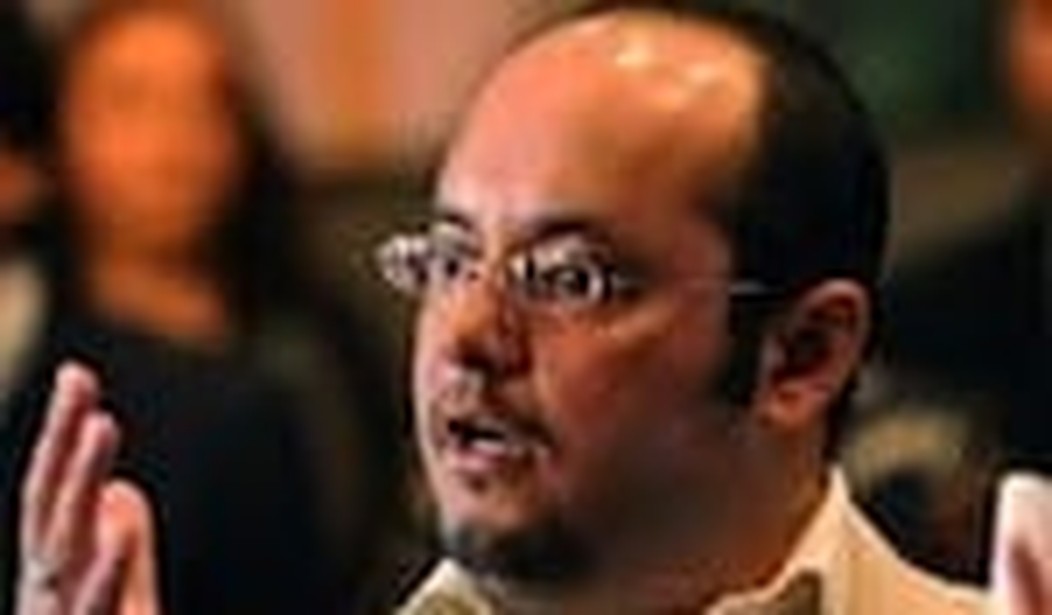The Colorado lower house passed four gun-control bills recently, all of which were bad ideas, but at least some of these bills had something to do with a real problem: mass murder. Democrats are, of course, pursuing the wrong strategy, but there is at least some connection between recent mass murders and high-capacity magazines; it isn’t like they passed a law against staplers.
But why did they pass a bill to ban concealed-carry licensees from carrying on university campuses? What problem were they trying to solve?
I have been following the struggle over concealed carry on campus for a number of years, at least in part because I teach at a community college and I have taught at a state university in the past. While I generally feel safe on campus, I recognize something that many students figured out after the Virginia Tech slaughter. By declaring themselves “gun-free zones,” universities and colleges have essentially put up an invitation: “Madmen intent on going out in a blaze of infamy: come here to commit your crime. We guarantee that no one here will be able to legally shoot back.”
This is the one category of college crime that does worry me a bit: the insane person who decides to become famous by shooting up a place where we are sheep to be led to the slaughter. This is a low-probability, high-consequence event: I used to compare it to an asteroid collision, people no longer laugh when I say that.
The case for banning concealed carry on Colorado college campuses, according to one of the Democrats in the Colorado lower house, is essentially that women terrified of rape will just start shooting people at random out of fear. This does not seem to be a problem in Colorado as a whole; perhaps there is something about university students that makes them less intelligent than the average Colorado female? More likely, Rep. Salazar is a sexist fool.
In any case, we don’t have to wonder what the results of allowing concealed carry on campus will be. The experiment has been ongoing for some years now.
Colorado adopted a “shall-issue” concealed-carry permit law in 2003. Colorado State University at Fort Collins had no problem with this at first, and until at least 2010, there was no restriction on faculty, staff, students, or visitors carrying concealed on campus, as long as they had a valid license. University of Colorado, Boulder, however, did prohibit licensees from carrying on campus until last year, when the Colorado Supreme Court ruled that, contrary to ivory tower opinion, the University of Colorado is actually inside the state of Colorado, and subject to its laws. (What a concept!)
So, what happened to violent crime rates at these two campuses during this period when, to hear Rep. Salazar tell the tale, co-eds might have been blazing away at non-rapists behind every bush?
Here’s the plot of violent crime rates (per 100,000 people) for both campuses from 2003 through 2011, from the FBI’s Uniform Crime Reports (Table 9 for each year):
Because there is enormous variation in violent crime rates, I have added a trend line as well for each campus. As you can see, crime rates are generally down at both campuses — and the trend lines are parallel — indicating a generally similar decline (although UC Boulder did have a pretty nasty run-up while Fort Collins was enjoying a big drop in violent crime rates from 2004 to 2008). I won’t claim that this data prove that CSU Fort Collins was safer than UC Boulder because of concealed carry, but Fort Collins was a safe school at the start, a safer school at the end, and certainly did not get any worse.
The same is not true for UC Boulder.
Utah State University has allowed concealed carry by permit holders at least since 2002, when Attorney General Shurtleff issued an opinion that state universities were required to recognize state permits. The University of Utah fought it, losing the battle in 2006. Like the University of Colorado, they held the notion that in spite of the Utah legislature paying the bills and the University of Utah actually being inside Utah, following state law was optional.
Shock of shocks, Utah college students must be a lot like Colorado college students (although a bit less violent):
Once again, the University of Utah started out more violent than Utah State University, and remains more violent through this period. Neither school is particularly dangerous. While the trend lines show that there is a slight increase over the period 2003 to 2011 on both campuses, there is nothing that suggests that University of Utah allowing guns on campus after 2006 (or Utah State University after 2002) did anything dramatic to increase violent crime rates.
College campuses in both of these states are reasonably safe, like the campus where I teach. I am not terribly worried about being attacked by criminals, nor do my students worry me in the least. Anyone that I would be much worried about being on campus with a gun almost certainly does not qualify for a license anyway. If such a person decided to ignore the law and misuse a gun on campus — or if the meteor-strike rarity of an insane mass murderer were to show up on campus — I would rather be able to defend myself and my students, instead of just hoping that the police would show up in time.
Related:











Join the conversation as a VIP Member